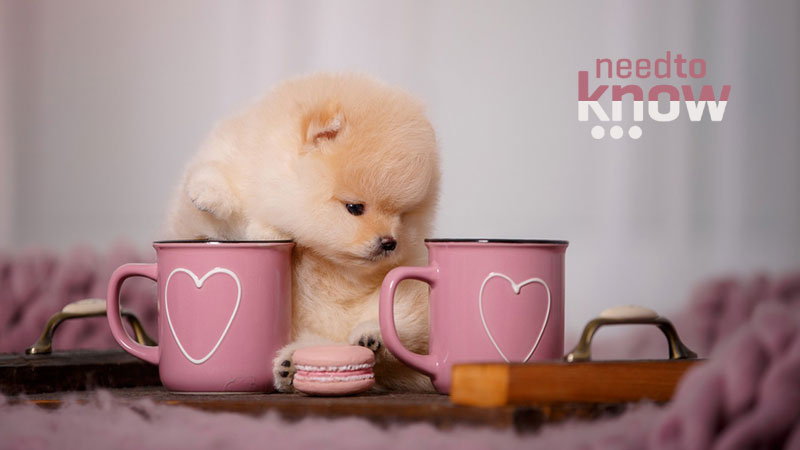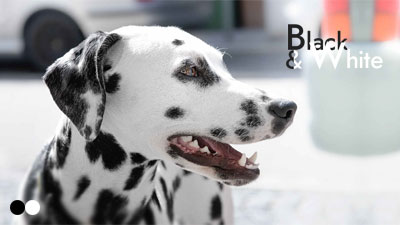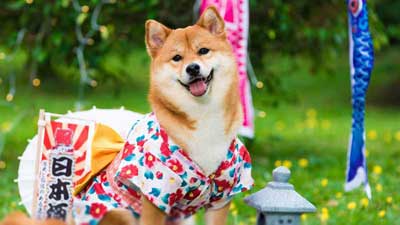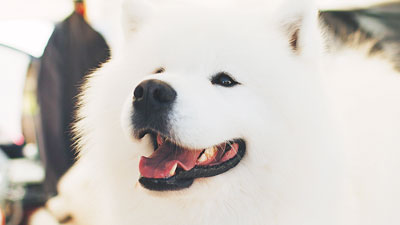- Size
- Smallest
- Small
- Small to Medium
- Medium
- Large
- Giant
- Characteristics
- Smartest
- Hypoallergenic
- Fluffy
- Best Guard
- Best Family
- Best for Kids
- Low Shedding
- Healthiest
- Police Dogs
- Most Calm
- Quietest
- Color
- White
- Black
- Grey
- Brown
- Blue
- Red
- Coat
- Hairless
- Short
- Long
- Origin
- Japan
- China
- Australia
- Germany
- Italy
- United States
- France
- Group
- Hound
- Terrier
- Herding
- Toy
- Working
- Sporting
Teacup Dogs Everything You Need to Know

Teacup dogs have become increasingly popular over the last several years. They have become the new in thing and teacup dogs are everywhere, ranging from Youtube videos to various famous Instagrams, to Paris Hilton's purse.
What is a Teacup Dog?
There's not a single breed of teacup pups, any breed can have "teacup" pooch but it is much more normal to find teacup dogs in smaller breeds.
The only requirement for a dog to be considered a teacup is to weight between two and five pounds and be less than 17 inches when fully grown, so "teacups" are much more easy to find in the smallest breeds like Yorkshire Terrier, Maltese, Pomeranian, Pug, Shih Tzu, and Chihuahua.
10 Popular Teacup Dog Breeds in the World:
- 1. Teacup Chihuahua
- 2. Teacup Maltese
- 3. Teacup Poodle
- 4. Teacup Pomeranian
- 5. Teacup Yorkshire Terrier (Yorkie)
- 6. Teacup Shih Tzu
- 7. Teacup Pug
- 8. Teacup Bichon Frise
- 9. Teacup Beagle
- 10. Teacup Silky Terrier
What are the Advantages of Teacup Dogs?
Teacup dogs are extremely cute, and their small size makes for less maintenance and easier cleaning.
Also, due to their size, they don't require such a huge amount of space and exercise as large breeds like Siberian Husky or German Shepherd, and their smaller weight and size makes them easier to manipulate and hold, making them good companions for the elderly.
Teacup Dogs Health Issues & Downsides
However, not all are upsides when it comes to teacup pups, and they might have more downsides than upsides.
For starters, teacup dogs tend to be extremely expensive and can reach prices up to $5,000 or more. Teacup dogs are so tiny, you’re less likely to see them, also more prone to being stepped on, sat on, or dropped simply.
Teacup dogs often need to be fed several times a day or more to avoid low blood sugar levels. Not only that, but smaller breeds and smaller dogs tend to experience problems particular to their tiny size, such as hypoglycemia (low blood sugar), seizures, liver shunts, hydrocephalus (water on the brain), heart problems, respiratory problems, incontinence issues, bone fragility, among others.
Use breeding techniques that are extremely detrimental to the dogs, such as inbreeding runts together in hopes of producing smaller pups (which can produce genetic disorders), malnourishing the dogs in hopes of decreasing bone growth, or selling regular sized animals as a teacup.
Difficult to find an ethical teacup puppy breeder: a lot of them are the so-called "puppy mills", which mass-breed dogs with little concern for their health, happiness or safety.
Is it Possible to Find a Good, Ethical Teacup Puppy?
Yes it is, but it will take a lot of research and patience to find a breeder that has a teacup puppy, and we say "has" because every once in a while, a breeder might naturally have a litter of smaller-than-average pups that are healthy and have been bred ethically, and the breeder will be able to guarantee you their health.
If you want a teacup puppy, patience and research is the key.
Avoid pet stores, which tend to have puppy mills as suppliers and usually don't have too much concern for the health, happiness or safety of the animals they sell; research an ethical, good breeder that can provide a healthy, happy, ethically bred pup and do some research on how to keep them happy, healthy and safe.
The Bottom Line
A Recommendation: Avoid Teacup Dogs! Please consider adopting a dog from a shelter.
There are plenty of lovely loving dogs out there that could fit your needs and are waiting for a home, and they will be just as good and make you as happy as a teacup puppy!
References
- [1] ^ PetMD: The Truth About Teacup Dogs
- [2] ^ The Dodo: If You Love Animals, Never Buy A Teacup Dog





